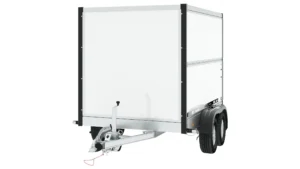The Future of Heavy-Duty Material Handling: Warehouse Rough Terrain Forklifts
2025-07-15 04:20:30
Warehouse rough terrain forklifts are engineered to tackle uneven surfaces, muddy conditions, and outdoor storage yards with ease. Unlike standard forklifts, these machines feature reinforced tires, higher ground clearance, and powerful engines capable of navigating harsh terrains. According to industry reports, the global market for rough terrain forklifts is projected to grow at a CAGR of 6.2% by 2027, driven by increasing logistics demands in construction, agriculture, and large-scale warehousing.
One of the key advantages of warehouse rough terrain forklifts is their adaptability. These machines can transition seamlessly between indoor and outdoor operations, making them ideal for facilities with mixed storage needs. Advanced hydraulic systems ensure smooth lifting even on unstable ground, while ergonomic cabins enhance operator comfort during extended shifts. A recent study by the Material Handling Institute highlighted that companies using rough terrain forklifts reported a 15% increase in operational efficiency compared to traditional models.
Safety remains a top priority in the design of warehouse rough terrain forklifts. Modern models incorporate stability control systems, anti-rollover technology, and enhanced braking mechanisms to minimize accidents. Forklift-related incidents in industrial settings have decreased by 22% over the past five years, partly due to these innovations. Additionally, telematics integration allows fleet managers to monitor performance metrics in real-time, ensuring optimal usage and maintenance schedules.
Sustainability is another critical factor shaping the future of warehouse rough terrain forklifts. Manufacturers are increasingly adopting hybrid and electric powertrains to reduce emissions without compromising power. For instance, leading brands now offer lithium-ion battery-powered models that deliver up to 10 hours of continuous operation on a single charge. This shift aligns with global sustainability goals, as the logistics sector accounts for nearly 8% of total carbon emissions annually.
Looking ahead, automation and AI will further revolutionize warehouse rough terrain forklifts. Autonomous navigation systems, powered by machine learning, are being tested to handle repetitive tasks in hazardous environments. These advancements promise to reduce labor costs and improve precision in material handling. As industries continue to expand into remote and rugged locations, warehouse rough terrain forklifts will remain a cornerstone of efficient, safe, and sustainable operations.








